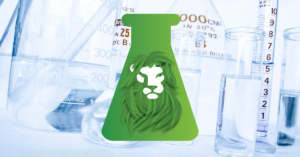Cultivating Cannabis Sustainably: Promoting Environmental Responsibility in the Industry
As the cannabis industry continues to grow, it is essential to address the environmental impact of cultivation practices. At CATLAB, LLC, we believe in promoting sustainable and eco-friendly approaches to cannabis cultivation. This month, we’ll explore the environmental challenges associated with cannabis cultivation and highlight sustainable practices that can help mitigate their impacts. By adopting sustainable methods, we can ensure a healthier planet while cultivating high-quality cannabis.
Understanding the Environmental Challenges
Cannabis cultivation can have significant environmental consequences, including water usage, energy consumption, waste generation, and chemical pollution. It is crucial to address these challenges and implement sustainable solutions to minimize the industry’s ecological footprint.
Water Conservation
Water is a precious resource, and cannabis cultivation requires careful management to reduce water usage. Implementing water-efficient irrigation systems, collecting rainwater, and recycling wastewater are effective strategies for sustainable water management in cannabis cultivation.
 Energy Efficiency
Energy Efficiency
Indoor cannabis cultivation often relies on artificial lighting and climate control systems, which consume substantial amounts of energy. Transitioning to energy-efficient LED lighting, utilizing renewable energy sources, and optimizing HVAC systems can significantly reduce the carbon footprint of cannabis cultivation operations.
Waste Management
Proper waste management is essential to prevent pollution and promote sustainability. Implementing recycling programs, composting organic waste, and using biodegradable packaging materials are steps that can minimize the environmental impact of cannabis cultivation and packaging processes.
Organic Cultivation Practices
Choosing organic cultivation methods eliminates the use of synthetic pesticides and chemical fertilizers, reducing the risk of soil and water contamination. Organic cultivation promotes soil health, biodiversity, and overall ecosystem resilience.
Integrated Pest Management (IPM):
Implementing IPM practices involves using a combination of preventive measures, biological controls, and targeted pesticide applications to manage pests effectively. This approach minimizes the use of harmful chemicals and promotes a healthy balance between plants and their natural predators.
 Collaboration and Education
Collaboration and Education
Promoting sustainability in the cannabis industry requires collaboration and knowledge sharing. Engaging in industry-wide initiatives, participating in educational programs, and sharing best practices can create a collective effort towards a greener and more sustainable cannabis cultivation industry.
At CATLAB, LLC, we recognize the importance of sustainable practices in cannabis cultivation. By prioritizing environmental responsibility, we can mitigate the industry’s impact on the planet. Embracing water conservation, energy efficiency, waste management, organic cultivation, integrated pest management, and knowledge sharing, we can create a more sustainable future for the cannabis industry. Let’s work together to cultivate cannabis in harmony with nature and ensure a greener tomorrow.

